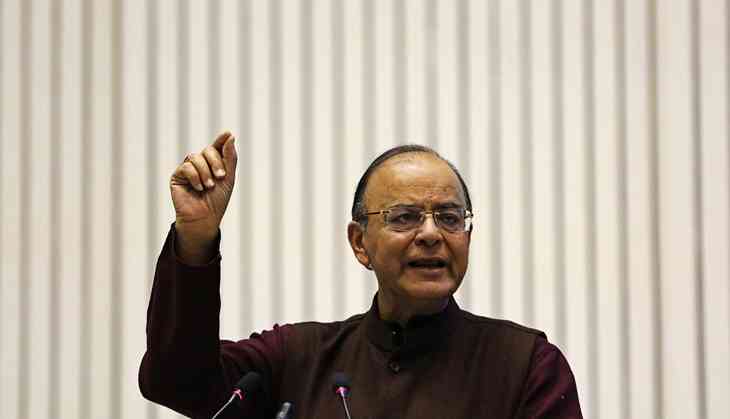You may diss Aadhar opponents Mr Jaitley. But privacy concerns are genuine

Finance Minister Arun Jaitley has managed a convenient spin on the privacy debate around Aadhaar. What is being contested in the name of an individual's right to privacy and the security of personal data, Jaitley has tried to paint it as tax-evasion and corruption. The minister seems to be implying, by extension, that all those who are opposing Aadhaar being made mandatory for everything under the sun are rich and corrupt tax evaders.
“You find non-compliance being defended these days in the name of privacy...This is where we have to get out… The debate in favour of compliance has to be a debate based on creating a more ethical and a more compliant India,” Jaitley said in his keynote address at the Income Tax Day celebrations on 24 July.
The reference was quite obviously to the Aadhaar and privacy debate, which is right now being tackled by a 9-judge bench in the Supreme Court. Even as the hearings in that case continue, Jaitley's assertion has come as a clear indication of the government's thoughts on the issue. What his statement reflects is that the government is not just over-enthusiastic in its push for Aadhaar, it is also suspicious of every argument that highlights possible lacunae of the Aadhaar regime.
In the privacy case in the Supreme Court, petitioners are essentially arguing that linking Aadhaar with multiple aspects of an individual's life exposes the latter to violation of his privacy. Since the court has already held that right to privacy is not absolute, what is being debated is that can it be interpreted as a fundamental right or not. The hope is that in the event it is settled as a fundamental right, individuals can be given the option of linking their financial profile and other data with Aadhaar or not.
This is a perfectly legitimate contest, given the government's poor record in guaranteeing the safety of data collected under Aadhaar, including contact details and bio-metric details. Why the government itself recently admitted in Parliament that more than 200 government websites have published names of beneficiaries of welfare schemes with their addresses and Aadhaar numbers.
The Center for Internet and Society, a private think-tank, had claimed in May that Aadhaar numbers of over 13 crore people and bank account details of about 10 crore of them were leaked through a number of government websites.
There is definitely something amiss and until Aadhaar data can be made leak-proof what is the harm in putting the linking on hold? Since the battle is also in the highest court of the land, why not let it unfold there without attempting to create additional pressure outside? Where is the need to link this debate with tax evasion and present all voices on the other side as that of the corrupt?
This is an attempt to deliberately misguide public opinion and lead the debate astray. The idea is to create binaries of corrupt vs non-corrupt, thereby simplifying the debate so much that people will be likely to take sides conclusively, completely ignoring the nuances of privacy. The government has in any case been trying to keep the corruption debate alive through repeated mention of demonetisation and the benami assets act.
However, when it actually comes to corruption there has been little action on the ground. There has been no significant action on the Panama papers and demonetisation has neither brought top defaulters in the agencies' net nor plugged routes of money-laundering. Jaitley speaks of cleaning electoral finance but his government is being accused of making political funding more opaque than before.
What then is this misdirection about? Is the government's case falling apart in the Supreme Court? It is too early to say that, but the minister's statement does smack of frustration of sorts.


